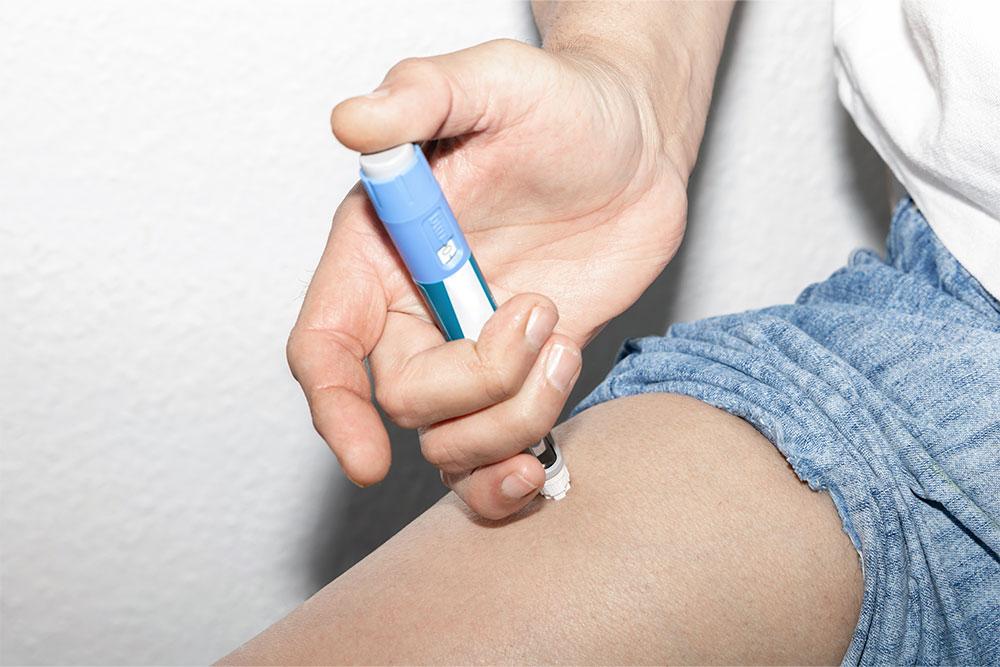Have you ever felt stuck in your weight loss journey, trying countless diets and workout plans without seeing the results you hoped for? You’re not alone—many people face this frustrating struggle. Weight loss injections have emerged as a potential game changer, but how do they actually work? In this article, we’ll explore the science behind these injections, what to expect, and how they might fit into your overall weight loss strategy. Whether you’re curious about their effectiveness or simply wondering if they could be a solution for you, there’s a lot to uncover here. So, let’s dive in and see if this could be the key to unlocking your goals.
Understanding Weight Loss Injections
In the world of weight management, it’s all too common to fall into the trap of quick fixes and miracle solutions. Weight loss injections, however, offer a more sophisticated approach than the typical fad diets we’ve become accustomed to hearing about. These injections typically contain medications that influence hormones or metabolic pathways, and by doing so, they help curb appetite or enhance fat burning. But this isn’t a one-size-fits-all solution, and understanding the intricacies can be quite enlightening. Have you ever considered how your hormones dictate not just hunger but how your body utilizes energy? This fascinating interplay might be the key to why these injections can have such powerful effects.
For instance, let’s delve into a popular option: semaglutide, a medication originally designed for Type 2 diabetes. Research indicates that semaglutide can lead to significant weight loss by mimicking a hormone that targets areas of the brain regulating appetite. Imagine reducing cravings just by altering the signals your brain receives! But here’s a question to ponder: what does this mean for long-term weight management? While injections can help kickstart weight loss, the journey doesn’t end there. Users need to integrate healthier habits, like improved nutrition and regular exercise, into their routine to sustain the results. Studies show that combining these methods yields optimal outcomes, reinforcing the idea that weight loss is a multi-faceted challenge.
It’s also crucial to recognize that not all weight loss injections are created equal. Some may be more suited for certain individuals, depending on health conditions, lifestyle, and even genetic factors. Take a moment to consider how individual differences can affect treatment success. For example, while one person might thrive on semaglutide, another could derive more benefits from a different medication or method entirely. The nuances are vast, and screening by healthcare professionals remains essential for safe and effective use. As more research emerges, we continue to challenge outdated views, creating a landscape of personalized approaches in weight management. Embracing this evolution could be your first step toward more informed choices.

Mechanism of Action Explained
When exploring how a weight loss injection operates, it’s fascinating to consider the underlying science at play. These injections often contain active ingredients that mimic hormones or peptides naturally produced by our bodies. For instance, one popular weight loss injectable, semaglutide, mimics a hormone called GLP-1, which plays a significant role in appetite regulation. Think about it: wouldn’t it be interesting if we could tap into the body’s own mechanisms to further our health goals? By enhancing feelings of fullness and slowing gastric emptying, these medications can help reduce overall caloric intake significantly. According to a study published in the *New England Journal of Medicine*, participants using semaglutide lost an average of 15% of their body weight over a year compared to a much smaller percentage in those on a placebo.
Now, let’s consider the role of metabolism. You might have heard that many weight loss methods focus solely on calories consumed versus calories burned. While that’s true, weight loss injections provide a unique edge by stimulating metabolic pathways, potentially leading to increased energy expenditure even at rest. The idea that a little help from an injection can make a difference in how your body processes and utilizes energy is something worth pondering. If personal experience is anything to go by, many users report not only physical changes but improvements in mood, energy levels, and overall motivation to maintain a healthier lifestyle. Indeed, weight loss is more than just shedding pounds; it’s about embracing a holistic approach to wellness.
However, it’s essential to remember that these injections aren’t magic bullets. To maximize the benefits, they should ideally be part of a comprehensive weight management program, including a balanced diet and regular physical activity. Engaging in these healthy habits alongside your injection can create a synergy that enhances results. For those curious about the balance of medication and lifestyle changes, resources like the *Centers for Disease Control and Prevention (CDC)* offer invaluable guidelines on effective weight loss strategies. Remember, before considering any weight loss injection, a candid discussion with your healthcare provider is a crucial step in ensuring that it aligns with your unique health profile and goals.

Types of Weight Loss Injections
When it comes to weight loss injections, several options are making waves in the fitness and health communities. One of the most popular types is GLP-1 receptor agonists, such as semaglutide (Ozempic). Initially developed for type 2 diabetes, this injection works by mimicking a hormone that targets areas of the brain involved in appetite regulation. Imagine this: a little injection can help diminish those late-night cravings you’ve battled for years! But is it a magic bullet? Not quite. While it can lead to significant weight loss, it’s important to pair it with healthy lifestyle changes for the best results. Have you thought about how diet and exercise integrate with these treatments?
Another noteworthy contender in the weight loss injection arena is lipotropic injections. Often referred to as the “fat-burning” shots, these typically contain a blend of B vitamins, amino acids, and other compounds that may help boost metabolism and promote fat breakdown. Think of it as an extra push when you’re hitting the gym or trying to stay active. Some swear by them, feeling more energized and focused during workouts; however, scientific backing is still evolving. Are these injections just a placebo effect, or could they genuinely help fuel your fitness journey?
Lastly, we must mention HCG (Human Chorionic Gonadotropin) injections, which have generated quite a buzz in the dieting world. HCG is a hormone that plays a key role during pregnancy and, when used as a weight loss tool, proponents claim it can help reduce hunger while promoting fat loss. That said, research on its effectiveness and safety is mixed, and many health professionals caution against its use for weight loss alone. As you ponder these options, it’s essential to consider your individual health needs and consult with a healthcare provider to find the best approach. After all, what works for one person might not be the golden ticket for another! Understanding these differences can ultimately empower you in your journey towards better health. For detailed insights, check out studies from the National Institutes of Health.

Benefits and Risks to Consider
When considering weight loss injections, it’s crucial to weigh both the potential benefits and the risks involved. On one hand, these injections can provide a significant boost to your weight loss journey. Many people report quicker results compared to traditional methods such as diet and exercise alone. This can be particularly motivating, helping to build confidence and reinforce positive lifestyle changes. Moreover, for those struggling with obesity or health issues related to weight, injections may offer an accessible solution that could improve overall health and well-being. Did you know that some studies suggest combined approaches (like injections alongside behavioral modifications) can yield impressive results? It’s not just about losing pounds; it’s about finding a healthier version of yourself.
However, it’s essential to proceed with caution. Weight loss injections can come with side effects, varying from mild discomfort to more serious health concerns. Imagine starting a new fitness regime, only to feel apprehensive about what you’re putting in your body. Questions like, “What are the long-term effects?” or “Am I risking my health for a quick fix?” surface. It’s vital to do thorough research and consult healthcare professionals to understand what you’re getting into. For instance, reactions like nausea or changes in mood can impact your daily life, making it more challenging to stick with the plan. Engaging with others who have undergone similar experiences can offer unique insights into what to expect.
Ultimately, the decision to proceed with weight loss injections should align with your body’s needs and personal goals. Remember to create a comprehensive plan that includes healthy eating, regular exercise, and ongoing support from healthcare providers. By taking into account both the positives and the negatives, you’ll be empowered to make a decision that feels right for you. If you’re curious about the scientific evidence behind these methods, consider checking reliable sources like the blank”>National Institutes of Health or the blank”>CDC’s obesity page to find relevant studies and data that could enhance your understanding. In the journey to wellness, knowledge is just as vital as any injection!

Consulting Your Healthcare Provider
When considering a weight loss injection, your first thought might be: “Will this really work for me?” It’s a fair question—after all, the world of weight loss is littered with quick fixes and miracle solutions that often fall flat. That’s why isn’t just a formality; it’s the cornerstone of making informed decisions about your health. They can unpack the science behind these injections, like the way certain medications can mimic or enhance the effects of natural hormones that regulate hunger and metabolism, leading to reduced appetite and increased fat burning. Did you know that some treatments, such as GLP-1 receptor agonists, have been shown to support weight loss by up to 15% in clinical trials? Understanding the mechanism can empower you and lend clarity to your choices.
Moreover, a healthcare professional can help you navigate the vast landscape of your personal health history. You might be tempted to hear a friend rave about their experience, but weight loss injections are not one-size-fits-all. Factors such as pre-existing conditions, medications you’re currently taking, and your overall health profile play a significant role in determining whether these injections are a prudent choice. Engaging in an open dialogue about your lifestyle, goals, and any concerns you might have can illuminate the best path forward. Your healthcare provider is not just there to dispense medications; they can become your partner—equipped with the knowledge and tools to support your weight loss journey.
Additionally, embrace the opportunity to ask questions that challenge what you might frequently hear or fear about these injections. Can they lead to dependency? What are the possible side effects? Will I gain back the weight after stopping the treatment? Your provider can help demystify these concerns with well-researched information. For instance, engaging with original studies published in journals such as the *New England Journal of Medicine* can provide you with insights into the long-term impacts of weight loss medications. By informing yourself through credible sources, you’re preparing not just to make a decision, but to embark on a transformative journey that’s safe, effective, and tailored just for you.
Wrapping Up
As we’ve explored the mechanics of weight loss injections, it’s clear that these treatments can offer a valuable tool in achieving weight management goals for those who are struggling. Beyond the science, it’s all about finding what works best for your unique body and lifestyle. If you’re considering this option, take a moment to consult with a healthcare professional to see if it aligns with your journey. Remember, every step towards a healthier you counts, so whether it’s trying a new treatment or simply adjusting your daily habits, embrace the process and be proud of your progress. Have you ever tried a weight loss injection or considered one? Share your thoughts in the comments—your experiences could inspire others to take action. Keep pushing forward; you’re already on the right track!





